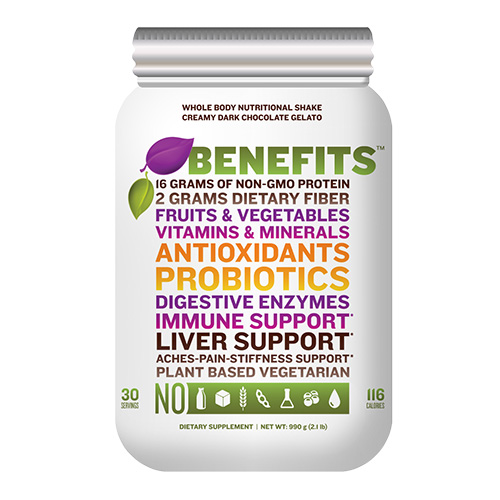How Many Calories Do You Need For Safe Dieting?
How Many Calories Do You Need For Safe Dieting?

Calories are always in the equation whenever there is a discussion about dieting and how many calories one needs to have a safe and healthy path to losing weight. But The number and opinions can get confusing to the lay person. Here is our take.
Weight loss and it's principles are pretty simple, but one size does not fit all. A calorie is a calorie and we can debate the topic of good calories versus bad calories, but in simple terms let's just look at calories in an by themselves. To lose weight you either have to burn more calories or eat fewer calories. When we think about weight loss what we really need know is that we want to create an energy (calorie) reduction. The way we usually attempt to do this is by eating fewer calories, utilizing some kind of movement to increase the number of calories we burn. Some call this exercise or a physical fitness program. So if you do one or the other you will lose weight and if you combine the two, progress will escalate. In our opinion, a combination is the best way to go about formulating a sound and safe weight loss program that will serve you throughout your life, without any side effects and or rebound weight gains.
What is A safe Daily Calorie Reduction?
Although biochemically most human beings are almost identical in composition, that is where the similarities seem to end. When we begin to get into subsets of individuals, we can clearly see that we are very different when we look at several factors such as age, our baseline metabolism, our body size, sex, activities and or physical fitness, etc. So let's dissect what a calorie means to you in simple terms. We know that 3,500 calories on average is equal to about one pound of fat. Therefore, if you expect to lose one pound of fat, then you are going to have to burn more than 3,500 calories than you take in daily in order to lose one pound. pretty simple right?
Ok, maybe we should break it down a bit more so not to confuse you. Let's say as an example you reduce your caloric intake by 500 calories per day, every day, and did nothing else, you would lose about one pound per week. Now if you combine caloric reduction with activity you could eat 250 less calories a day and burn off 250 calories per day with activity, you would still arrive at about one pound of weight loss per week. Are you with me so far? While working with doctors at the Mayo Clinic, their take on a safe weight loss per week should not exceed 1-2 pounds and we generally agree with this assessment. That means in simple terms that you would want to burn 500 to 1,000 calories per day through a combination of caloric reduction and activity to lose weight in a safe manner..
Now that we have that out of the way, it can get tricky to provide a one size fits all approach in determining a safe minimum amount of daily calories to safely lose weight, mostly due to the factors mentioned above regarding differences in each individual. One thing we want to avoid when it comes to losing weight is fasting and or detox. Our biosystem is much smarter than we are and it is not going to tolerate your quasi ideas of fast weight loss and in fact when you attempt this, the body will see your actions as an attack on it's very survival and it will put you in your place as master in short order. When you do this and or skip a meal, your body is going to move into survival mode and out smart your extreme calorie reduction strategy and begin to counter by doing a number of things. Your body will start to slow down it's metabolic rate and then your endocrine and hormonal system will start to send cell signals throughout the body telling it to conserve the very calories you are trying to burn off when you skip a meal, detox, or fast. As this illustrates, this is counter productive to your weight loss goals.
As an average let's take some simple numbers as a guide so you can stay on target. Women on average should eat 1,200 calories per day and men should on average consume 1,800 calories per day. Mind you now, that this is for an average person and those numbers can dramatically change for extreme athletes and life threatening obesity.
It is hard to turn on the television or read a magazine without seeing the big deal about reducing stress to become a healthier person. However, many see the word "stress" and think about it in terms of work related, family related, thought related, financial related, etc. types of stress. But here we are talking about biochemical and or physiologic responses to the stress caused by excessive caloric restrictions. It is a chain reaction that consumes the entire bio-system when a prolonged period of less than 1,200 calories per day hammers away at our bio-core.
Remember, the bio-system is much smarter than we realize and initially your body will adapt to low caloric intake stress by engaging the "fight or flight" stress response. This is not a good thing because several things will take place hindering your weight loss goals. We never like the "get on the scale" approach because it can be quite deceiving. Even though you may see a drop on the needle of scale weight, don't think your body is not getting ready to put a crimp in your momentary glee.
What actually happens when you force your bio-core into this type of survival stress response, you are stimulating the breakdown of lean muscle mass by the bio-system to compensate for the lack of fuel (glucose), which maintains your blood sugar levels. This is not a good thing and long term caloric restrictions can lower your metabolism by up to 40 percent and can take up to one year to correct, which you want to avoid at all costs. Another reason scales can frustrate a person is because when we begin to replace fat with lean muscle mass, we need to realize that lean muscle mass is much heavier than fat. Therefore, from the prospective of a scale you might think you are gaining weight and become frustrated and fall off the pace.
Likewise when we see the picture of an anorexic whom appears to be just skin and bones, all we think to ourselves is that they need to eat much more calories. That is a misconception from the stand point that by virtue of the anorexic, most people who suffer from this are considered clinically obese. Yes you read this right and the reason being that most anorexics meet the criteria of obesity, why? Well because they are actually starving themselves and the bio-system is going to do all it can to survive, it will eat and breakdown all the lean muscle mass and what is left is just fat, and even though they look like a toothpick, their BMI is off the charts because that is all that is left. Make no mistake, the body will then begin to digest that as well when it has exhausted all other sources.. When this happens it means severe health complications and even death.
One must remember that the entire body is interconnected and we must never forget that the heart is considered a muscle also, so protecting the heart muscle is critical to life itself. Regarding the heart alone, we could write volumes, but for this purpose just think about the stress simple dehydration places on the heart, which could lead to a heart attack if prolonged. Now you have a snapshot of the principles of healthy weight loss and can use this as a guide to tailor a program that is right for you personally.
With all this said, there are many that say, I just don't have the time to concentrate on this stuff on a daily basis due to my work schedule and or lifestyle. Or they give it a try but fall off pace in short order. I hear you loud and clear, no one knows that better then myself. Running a farm, laboratory, writing, traveling to conduct lectures and then some. So you could try what I do to ensure stability within the bio-system on a daily basis. I always try to maintain a healthy approach, not just for weight lose, but also for weight maintance, optimal daily nutritional needs, vitality and energy.
Our bio-system is very intelligent and knows what it needs, when it needs it. Whatever it needs, it will use. What it does not need, it will eliminate. Another key factor that most are not aware of is that the bio-system does not need a large volume of material matter to get what it needs. It really craves nutrients that feed and nurture it.
Let's look at breakfast as one example. Mary or Bob wake up in the morning and heard somewhere that you need to eat breakfast to get your day started. So Mary goes to starbucks and orders her $7 dollar favorite moca-chocolata, with 3 pumps of vanilla and a bear claw. Bob heads out to Denny and orders a stack of pancakes, bacon, 2 eggs and several cups of coffee. When they are both done, they feel energized, full and ready to start their day. I do not eat anything like that and just have a 33 gram scoop of Monarch Manor Farms "BENEFITS" whole body nutritional shake in almond milk. When i am done, I also feel full and energized to get on with my day. Now we have three different people, one of which is having a very different outcome.
Mary and Bob, begin to feel lack luster by 10:30am, dipping energy, and even tired enough to want to take a nap, but they can't because they are at work. So Bob has a few cups of coffee to perk himself up and Mary eats one of those energy bars with lots or sugar and carbs. For the next half hour they feel more of an anxieity then energy and in short order start the energy dip again. I, on the otherhand feel great and have lots of energy and still feel satified with no hunger cravings. Now why is my result so different from that of Mary and Bob?
The mystery is not such a mysery once you break it down in simple terms. As discussed, the bio-system needs nutrition to function at it's optimal. So when we think nutrition and we are told to eat breakfast, that is what most do. Her is where the problem lyes. In order to get nutrition from any food source, we have been given teeth. Teeth macerate food and break it down. This is when the nutrition from that food is released. Problem number two. Most people do not chew each mouth full well enough to release that nutrition, if there is any there at all. Then they swallow partially mascerated food and then the bio-system has to work much harder to break it down further to squeeze the nutrients out. This does two things. It takes energy away from you while it is laboring to accomplish this and second it hardly gets any nutrients. Now you start to feel hungry again and start the whole process over again with the same cycle of results. The only way to break this cycle is the change your game. If you do that, the results will change for the better.
Let me explain why. You have slept through the night. While you are sleeping your bio-system is digesting all the things you have ingested through the day. Now when you wake up, your bio-system is punching out on the clock to take a much needed break. But instead of a break, it is bombarded with volumes of more nutrient poor food that ir has to get right back to breaking down.
Breaking The Cycle
Here is how to break this cycle. In the morning this is one of the best times to get nutrition into your bio-system. All things from the prior day have been processed and the blood stream is clear of competing traffic, so anything you ingest will go to cell level very quickly and get to the areas of the body and vital organs to nurture and protect the bio-system. Once this happens, there is a saity signal that gets sent to the brain telling it the bio-system has gotten the nutrients it needs. So the keyword here is "nutrients". That is not the same thing as volumes of nutrient poor ingestion. The other keyword is "maceration", the breaking down of food stuff to release nutrients. When you combine the two, you are on your way to a whole new lifestyle. Put in even simplier terms, the body needs nutrients, more then it needs volume. When you back away and think about it, people really eat so much because the bio-system keeps searching for nutrients in nutrient poor foods to function. That has not worked for you, so you might as well flip the script and focus on nutrients and you will naturally and effortlessly consume less volume.
The reason my results were so different then Mary's and Bob's is pretty simple. I just ingested 33 grams of pre-macerated whole food nutrients in 16 ounces of almond milk. My bio-system did not have to labor to break anything down and because it is pre-macerated the nutrients begin to release as soon as I start drinking it. Cell uptake begins before it reaches my stomach and my bio-system just soaks it up without effort and utilizes it where it is needed. I feel full, not to be confused with bloated and remain that way for much longer with a high level of energy and clairty. Not only that, but I can rest assured that I have provided my bio-system with all the precise nutrients vital to protecting and assisting in optimal functions. Then I am afforded a larger lunch menu because I have only ingested 118 calories of dense nutrition for breakfast. For dinner if I was trying to keep my caloric intake lower, I will have another 33 grams about 1 1/2 hours before my dinner, which keeps me from stuffing myself because I am so hungry. This is similar to the old adage of eating before grocery shopping.
I am one who practices what I preach on a daily basis and enjoy sharing my regime with anyone who is trying to break the cycle. Now the choice is yours. Join me and thousands of others that have broken the cycle with me and you will gain better health with "BENEFITS". The only losers will be at the register throwing their money and health away at Starbucks and Denny's. I look forward to hearing your success stories, until then, Stay Healthy.

